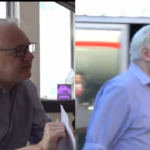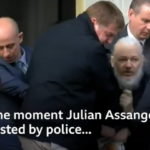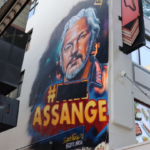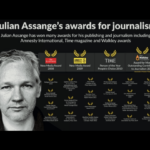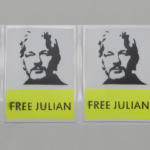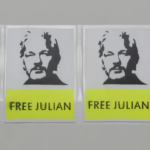Justice Has Been Denied to Julian Assange, Who “Plead Guilty to Journalism”
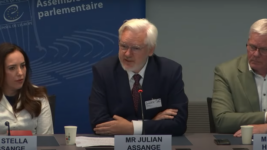
“I eventually chose freedom over unrealisable justice, after being detained for years and facing a 175 year sentence with no effective remedy,” multi award-winning Australian journalist and publisher Julian Assange remarked, as he was addressing the Parliamentary Assembly of the Council of Europe (PACE) on 1 October.
“Justice for me is now precluded,” the WikiLeaks founder continued, outlining that this was due to a number of stipulations the US had written into the plea agreement.
“I want to be totally clear. I am not free today because the system worked. I am free today because after years of incarceration I plead guilty to journalism.”
Assange appeared before PACE on Tuesday last week, ahead of a full meeting of the parliament the following day, which was set to involve debate over a report it has produced specifically on Assange’s incarceration in the UK, which involved over 62 months in prolonged isolation within the UK’s Belmarsh Prison.
The report that’s been produced by Icelandic politician Thorhildur Sunna Ævarsdóttir is entitled “The Detention and Conviction of Julian Assange and Their Chilling Effect on Human Rights”.
In addressing PACE last week, Ævarsdóttir outlined that Assange’s crime involved doing “what investigative journalists routinely do”, which comprises of publishing information provided by a source. Yet, as WikiLeaks revealed US war crimes, instead of persecuting those implicated, Washington “decided to prosecute the whistleblower” and the publisher and journalist.
“We must address this injustice and learn from it, so that it never happens again,” Ævarsdóttir explained, in relation to the two days of PACE meetings then taking place. And Assange’s speech to the council also happened to be his first public appearance since being released from a UK prison in June.
Global truth-telling
“I plead guilty to seeking information from a source. I plead guilty to obtaining information from a source,” Assange made clear before PACE’s Committee on Legal Affairs and Human Rights. “And I plead guilty to informing the public what that information was. I did not plead guilty to anything else.”
After spending seven years in London’s Ecuadorian Embassy to avoid an attempt by Swedish officials to prosecute him over alleged crimes, as he considered this was a plot geared to facilitating his extradition from that nation to the US, following his having published over 70,000 classified US government files over 2010 and 2011 that were leaked by ex-US army officer Chelsea Manning.
But UK police stormed the embassy on 11 April 2019 and arrested Assange over an old UK breach of bail offence, which involved a short prison sentence. But he was also taken into custody at the behest of the US, as it sought to extradite and prosecute him in relation to eighteen offences contained within a June 2020 superseding indictment, which carried a maximum of 175 years in gaol.
“I hope my testimony today can serve to highlight the weaknesses of the existing safeguards and to help those whose cases are less visible but who are equally vulnerable,” Assange continued, and he lamented that the truths he sought to expose were now “less discernible” with the passage of time and he expressed concern that this truth has now been “undermined, attacked… and diminished”
In relation to global press freedoms, Assange said he sees rising “impunity, more secrecy, more retaliation for telling the truth and more self-censorship”. And he added that when he started WikiLeaks, he was seeking to educate people and elevate “freedom of information and the public’s right to know”, but after the US arrested Manning in May 2010, it then turned on him.
Extraterritorial retribution
But according to Assange, in making its decision to go after him, the White House seems to have considered itself above the law, as it “illicitly sent planes of agents to Iceland, paid bribes to an informer to steal our legal and journalistic work product, and without formal process pressured banks and financial services to block our subscriptions and freeze our accounts”.
The Obama administration had initially dropped the prosecution, as it recognised that no crime had been committed, and Assange continued his work. And it wasn’t until he’d released the details of the CIA hacking manual Vault 7 in March 2017, a month after then president Donald Trump had been elected, that CIA director Mike Pompeo launched a campaign against the Australian citizen.
At that time, Assange revealed that the US was spying on French and German politicians, as well as the European Central Bank and European ministries. And he further exposed US subversion of supply chains via the propagation of malware and viruses targeting “cars, smart TVs and iPhones”.
“CIA director Pompeo launched a campaign of retribution,” Assange explained. “It is now a matter of public record that under Pompeo’s explicit direction, the CIA drew up plans to kidnap and to assassinate me within the Ecuadorian Embassy in London and authorised going after my European colleagues, subjecting us to theft, hacking attacks, and the planting of false information.”
“My wife and my infant son were also targeted,” he continued. “A CIA asset was permanently assigned to track my wife, and instructions were given to obtain DNA from my six-month-old son’s nappy.”
“Transnational repression”
Assange then set out that the “CIA’s targeting of myself, my family and my associates through aggressive extrajudicial and extraterritorial means” provides insight into how “powerful intelligence organisations engage in transnational repression”, and he added that such measures are not reserved for him, and he raised the treatment of “numerous whistleblowers” globally.
The WikiLeaks founder further outlined that in February this year, Joshuan Schulte, “the alleged source of some of our CIA revelations”, was sentenced to 40 years of “extreme isolation” for exposing government corruption, and the conditions he’s now subjected to include tortuous measures such as blacked out windows and white noise playing 24 hours a day.
And the man who spent over a decade being extrajudicially persecuted by the US, added that the White House has now set an extreme global precedent, whereby US citizens have recognised free speech rights under the US Constitution but all other nationalities do not, while, at the same time, the US Espionage Act and that nation’s secrecy laws apply to all and sundry around the planet.
“The criminalisation of newsgathering activities is a threat to investigative journalism everywhere,” Julian made clear in rounding off his speech. “I was formally convicted, by a foreign power, for asking for, receiving, and publishing truthful information about that power while I was in Europe.”
“The fundamental issue is simple: Journalists should not be prosecuted for doing their jobs. Journalism is not a crime: it is a pillar of a free and informed society,” the renowned Australian journalist said in concluding his PACER address.


